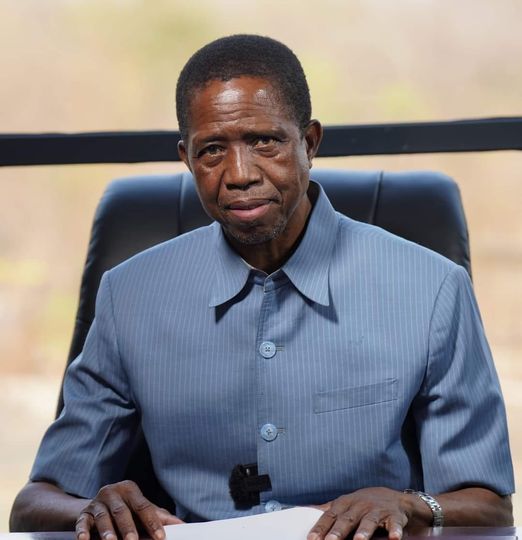By Ollus Ndomu
Zambia’s Constitutional Court judges have refused to recuse themselves from hearing the contentious eligibility case involving former President Edgar Lungu, rejecting accusations of bias and potential complicity. The court has also delivered a sharp reprimand to Lungu’s legal team, Makebi Zulu Advocates, accusing them of making unsubstantiated claims designed to discredit the judges without any credible evidence.
During a Thursday hearing, the judges made it clear that they would not be swayed by intimidation, despite attempts to influence the outcome of the case.
This legal battle, which centers on Lungu’s bid for a controversial third term in office, has drawn intense public and political scrutiny. The former president is facing a legal challenge brought by student leader Michelo Chizombe, who has petitioned the court to bar Lungu from running in future elections.
Chizombe argues that Lungu, having already served two terms, is constitutionally barred from seeking re-election. Zambia’s constitution limits presidents to two terms, a stipulation that has been a source of debate since Lungu’s exit from office in 2021.
Earlier this week, addressing his support base via Facebook, Lungu accused the petitioner of being a political tool for the incumbent President Hakainde Hichilema and his ruling United Party for National Development (UPND). Lungu further claimed that some members of the judiciary were part of a plot to block his return to power, stating, “What bothers us is the credible information that members of the Judiciary are keen or have demonstrated interest to participate in these political and illegal schemes to bar me from participating in elections.”
The former president’s comments did little to sway the Constitutional Court, which upheld its commitment to impartiality and transparency. The court, in its rebuke, noted that such accusations were part of a broader strategy aimed at undermining public confidence in Zambia’s judicial institutions. By refusing to disqualify themselves, the judges have sent a strong message that they will not be pressured into making decisions based on political rhetoric or external influence.
Lungu’s accusations have not been limited to the courtroom. In his critique of Hichilema’s government, Lungu highlighted the recent suspension of three Constitutional Court judges, Ann Sitali, Mungeni Mulenga, and Palan Mulonda, all of whom he had appointed during his presidency.
He characterized the suspensions as an attack on judicial independence, stating, “The suspension of the three Constitutional Court judges… undermines the rule of law and democracy in the country.”
The Constitutional Court case comes against the backdrop of heightened political tension in Zambia, where Lungu’s political base remains vocal and influential. His tenure as president from 2015 to 2021 saw him consolidate significant support among Zambia’s politically active youth and key party cadres, making his potential return to the political arena a polarizing issue.
While his critics argue that his pursuit of a third term would undermine the country’s democratic foundations, his supporters believe he has the right to contest again, citing ambiguities in how Zambia’s two-term presidential limit should be applied.
President Hichilema, for his part, has remained largely silent on the issue, though his government’s recent actions, including judicial reforms and the suspension of judges, have fueled speculation about its stance on Lungu’s political future.
The outcome of the eligibility case will not only determine Lungu’s political trajectory but may also shape Zambia’s broader political landscape ahead of the 2026 elections.
With the case now firmly in the hands of the Constitutional Court, Zambia’s democratic institutions face a crucial test. The court’s refusal to bow to political pressure suggests that the judiciary is intent on maintaining its independence, even as the nation braces for further political turbulence.


